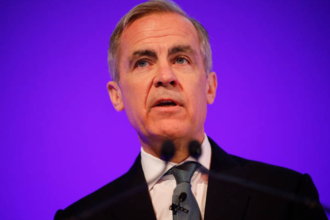President Donald Trump has made a strategic trade deal with Japan, which shows how his tough tariff diplomacy works. Japan agreed to concessions after long talks that changed the way trade works throughout the world. This success shows how tariff diplomacy may change international relationships and affect economic policies. At the same time, U.S. tariff revenues are rising quickly, giving the U.S. more power in future talks. This arrangement is a good example of how tariff diplomacy can help the government in real ways.
What Made the Japan Trade Deal Happen?
The framework was laid when the U.S. said it would put duties on Japanese products. At first, Japanese officials didn’t do anything. But they agreed to talk because of mounting protectionist pressure and worries about a bigger trade war. The U.S. suggested a 15% duty, which was greater than what other countries had to pay. In response, Tokyo promised to let the U.S. invest a lot of money in agriculture and promised to open up markets. So, tariff diplomacy helped the talks move fast toward a solution. Here is the link to our article on Japan Trade Tariff
What does this mean for U.S. tax revenue?
The U.S. Treasury is getting more and more money from tariffs. They already make up nearly $100 billion this year, which is about 5% of all federal revenue. The Treasury thinks it will be $300 billion a year. These numbers show why tariff diplomacy is becoming more popular: it pays off in both money and politics.
How Do Tariffs and a Weak Dollar Impact American Consumers?
American shoppers often have to pay tariffs. They might have to pay more for things that come from other countries. The U.S. dollar losing value makes things even more expensive. So, even though the government gets extra money, household budgets could be tight. In this way, tariff diplomacy has mixed results: it helps the Treasury but could hurt consumers. Here is the link to our article on Tariff Impact Asia
What does this mean for the world?
Japan’s deal could affect other countries around the world. The deal comes at the same time as trips to Tokyo by leaders from the EU and Canada. The lack of a concerted plan for retaliation implies that tariff diplomacy broke up traditional alliances. In the meantime, China is finding new ways to present itself as a trustworthy economic partner. Because of this, market methods are changing, and the way safe havens work is changing.
Final Thoughts
Tariff diplomacy in Trump’s strategy shows that aggressive trade approaches may work, bringing in more money, changing treaties, and breaking existing trade rules. But we still don’t know how it will affect the economy as a whole. As further trade deadlines get closer, the long-term effectiveness of tariff diplomacy will depend on whether it can keep this equilibrium.








